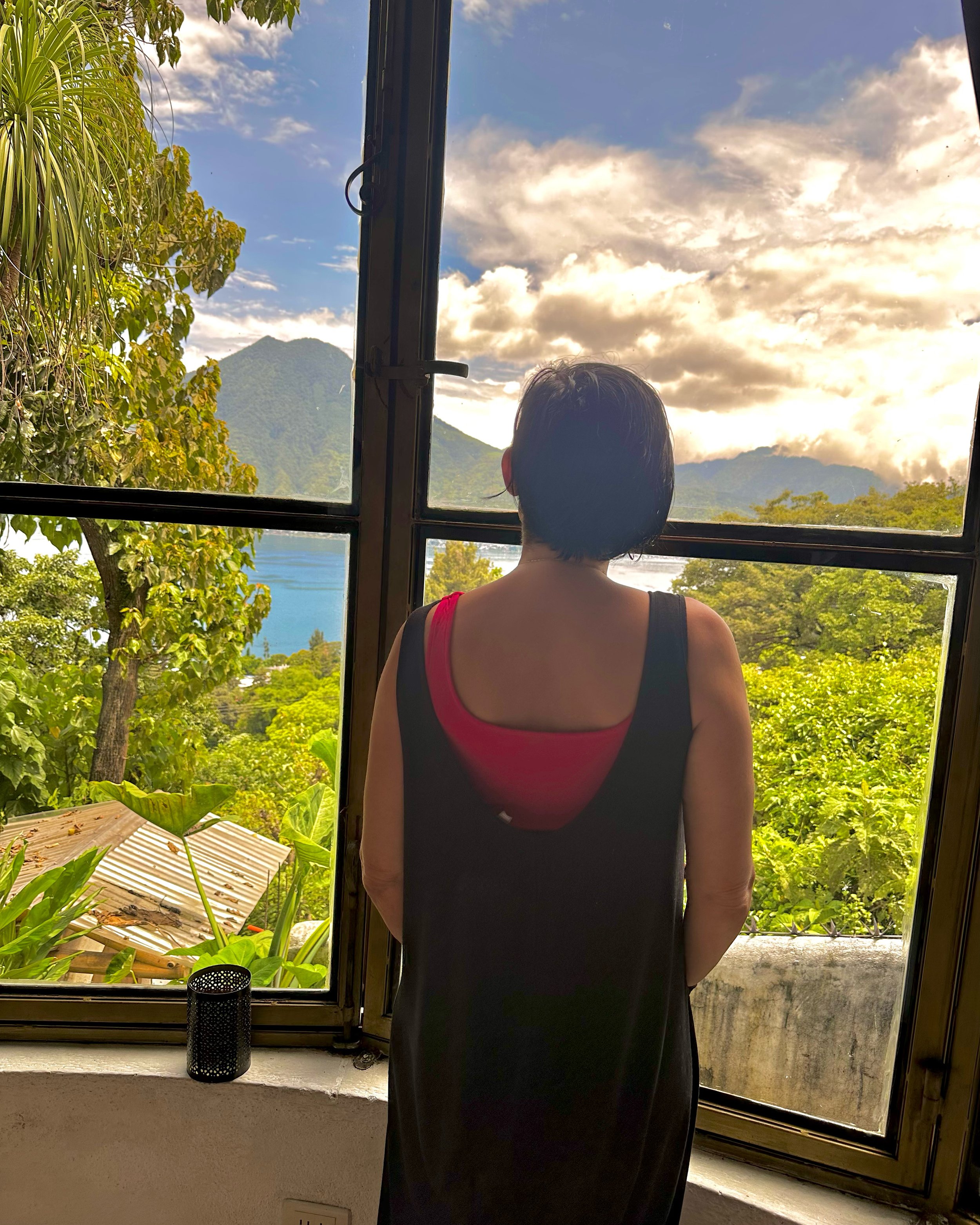Perspectives and Frames
Changing perspective and reframing experience are two important tools for living a happy and fulfilling life, understanding internal conflicts, navigating the world, and ultimately, making better decisions and solving problems more effectively.
Perspective is about the way we look at situations, whereas reframing is about how we define them. They are related, but different strategies.
Think of perspective as looking at a situation from a birds-eye view. From up above, we can see the bigger picture, new possibilities, and what isn’t working.
Think of reframing as assigning a new definition to something. Just as putting a new frame around a painting or photograph brings out new depth, value, and possibility, using new words and labels for our experience does the same.
For example, I used to worry that my writing would betray my family. But by being away from Iran and my relatives there, I was able to gain a new perspective: that I have a right to my story and how I decide to tell it.
The actual words, “betraying my family,” were a frame that needed changing. How could my experience be a betrayal? That led me to come up with a new frame: “Loyal to my truth.” This phrase puts the focus on authenticity, growth, and the possibility of helping others by sharing my story.
As a child, I often heard I was “too much”: too imaginative, too sweet, too intense. In therapy, I realized that the qualities that family members and teachers had attacked me for were the same ones that they were afraid of in themselves. This new perspective allowed me, as an adult, to choose friends and partners who could fully match me and claim their own intensity, sweetness, and imagination.
The old frame I was working with lay in the word “too”, which was suffocating. So I found the new frame of, “I don’t need to be small to make others feel big.” Now, I make decisions based on that frame. If I’m too much to someone, they can go find less somewhere else.
When I was in my late thirties, I used to believe that if I didn’t become a mother, my life would be meaningless. Over two decades of working with kids in high school, however, I realized that my maternal needs were actually being met. A new perspective opened up: that I am connected to and able to support children in so many non-biological ways.
I also gave myself a new frame: “child-free” instead of “childless.” This reframing meant that I can celebrate getting to travel, learn new skills, sleep in, and dance late into the night.
When we open up to new perspectives and reframings, we can also model this process for others.
For example, if someone is feeling guilty for setting boundaries with a partner or family member, we can suggest a new perspective by suggesting that they take some time alone, do some meditation or yoga, and maybe go into nature. This can often lead to big shifts and new visions.
We can also suggest a new frame, such as, “Honest ‘yeses’ and ‘nos’ bring trust and joy to relationships.”
What we don’t want to do is tell people, “Set better boundaries!” That’s both unhelpful and unnecessary. By changing perspectives and reframing, people will naturally find their power and wisdom. Our ability to see this truth in others is based on first being able to see it in ourselves.

